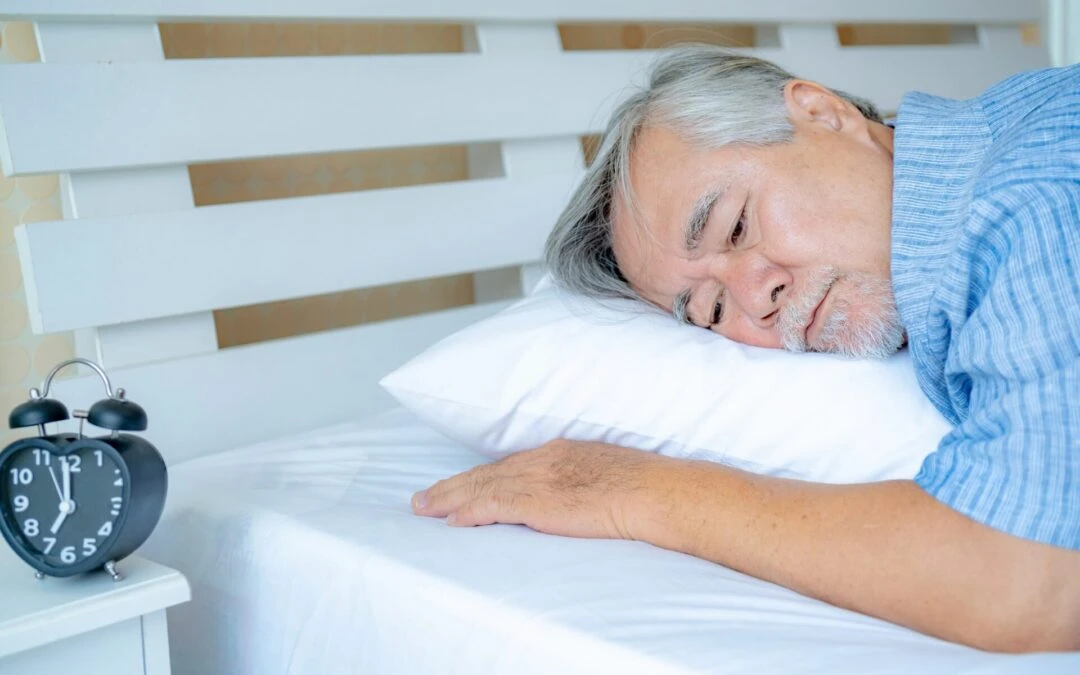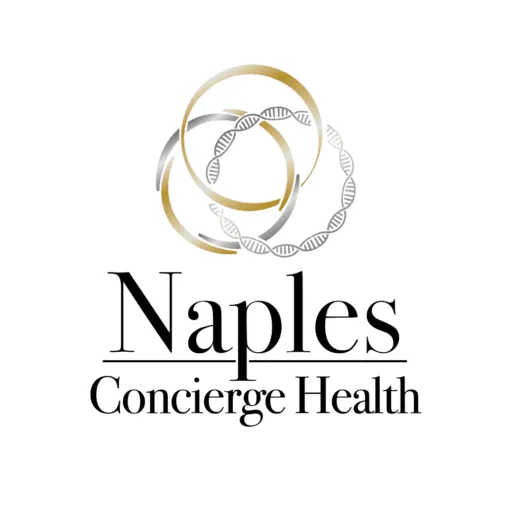Getting a good night’s sleep can become a real challenge as we get older. Many seniors find themselves tossing and turning, struggling with sleep disturbances that affect their overall well-being. Sleep is vital in maintaining our health, but different factors can make it harder to rest easily as we age.
But why does sleep become harder to come by with age? Are there common sleep disorders that affect seniors? Here’s everything you need to know to achieve better rest and wake up feeling refreshed.
Why Sleep Becomes More Challenging with Age
As we age, changes in our bodies can impact sleep, particularly our circadian rhythm, which regulates our wake and sleep cycle. This shift can lead to unpredictable sleep patterns, resulting in restless nights and lower sleep quality.
Older adults, typically around 68 years old, tend to go to bed earlier and rise earlier than younger adults.
Older adults tend to produce less melatonin, the hormone that regulates sleep, contributing to sleep disruptions.
The Role of Circadian Rhythm Changes
The circadian rhythm regulates sleep based on a 24-hour cycle, dictating when we feel awake or sleepy.
The magnitude of the circadian rhythms is reduced in older adults, including body temperature regulation and cortisol production, often causing seniors to feel tired earlier in the evening and wake up earlier in the morning, disrupting sleep cycles and leading to insufficient rest.
Older adults wake up more frequently during the night, take longer to fall asleep, and spend less time in deep sleep (stages 3 and 4) and REM sleep than younger adults.
Seniors may wake up frequently during the night or earlier than desired, making it harder to get a full, restorative night’s sleep. This shift is widespread in those over the age of 65, and it can contribute to insomnia in seniors, which is another major sleep concern.
External factors, such as evening light exposure, screen time, and irregular sleep schedules, can disrupt circadian rhythms and make it harder to maintain sleep.
Health Conditions That Contribute to Sleep Disturbances
As people age, they are more likely to experience health issues that can interfere with their ability to sleep.
Chronic pain, arthritis, diabetes, heart disease, and depression are just a few conditions that commonly contribute to disrupted sleep.
These health issues may cause discomfort, restlessness, and an inability to fall asleep or stay asleep throughout the night. Pain from conditions like arthritis or fibromyalgia can make it hard to find a comfortable sleeping position, while asthma or COPD can complicate breathing during sleep.
Seniors often take medications for various conditions, some of which can affect sleep quality, such as blood pressure medications, antidepressants, and antihistamines. This combination of health issues and medications can lead to significant sleep disturbances that may need medical intervention.
Common Sleep Disorders in Seniors
As we age, we become more susceptible to various sleep disorders. Here are some of the most common sleep disturbances in seniors.
Circadian Rhythm Disorders
Circadian rhythm disorders are common in seniors and can disrupt sleep patterns. As people age, their internal clocks may shift, causing earlier wake times or trouble falling asleep at night. This can lead to sleep deprivation, negatively impacting mood, cognitive performance, and overall daytime functioning.
Elderly individuals are often more sensitive to light changes, affecting their circadian rhythm. This can lead to sleep fragmentation or irregular cycles, causing wakefulness during the night or early morning and making it hard to maintain restful sleep.
Sleep Apnea
Sleep apnea is a common sleep disorder in seniors, often linked to conditions such as high blood pressure and heart disease. It involves repeated interruptions in breathing during sleep, preventing restorative rest and leading to excessive daytime sleepiness and fatigue, as well as an increased risk of serious health problems.
There are two types of sleep apnea: obstructive sleep apnea (OSA), which is more common and occurs when throat muscles relax excessively during sleep, blocking the airway, and central sleep apnea, which happens when the brain fails to signal the muscles that control breathing.
Both types can be dangerous, leading to heart problems, high blood pressure, and increased stroke risk if untreated.
Sleep apnea symptoms include loud snoring, gasping or choking during sleep, and daytime tiredness. Treatment options include lifestyle changes, CPAP therapy, and surgery for severe cases.
Seniors who suspect sleep apnea should seek medical advice to prevent the condition from worsening.
Restless Leg Syndrome
Restless leg syndrome (RLS) is another sleep disorder that often affects seniors. RLS is characterized by an uncontrollable urge to move the legs, frequently accompanied by uncomfortable sensations like crawling or tingling. Symptoms usually worsen at rest, especially in the evening, making it hard to fall asleep.
RLS is linked to dopamine imbalance and may involve iron deficiency or certain medications. It disrupts sleep quality. Management includes lifestyle changes and possibly medications. Seek medical advice if RLS is suspected.
Solutions for Better Sleep
Fortunately, several strategies are available for seniors to improve sleep hygiene and address sleep disturbances. These solutions can significantly improve the quality of sleep, leading to better overall health and well-being.
Sleep Hygiene Tips for Seniors
- Establish a consistent sleep schedule: Going to bed and waking up at the same time every day can help regulate your circadian rhythm and improve the quality of your sleep.
- Create a comfortable sleep environment: Ensure your bedroom is cool, dark, and quiet. Invest in a comfortable mattress and pillows to promote restful sleep.
- Limit caffeine and alcohol: Both caffeine and alcohol can interfere with sleep, particularly if consumed later in the day. Try to avoid these substances in the afternoon and evening.
- Engage in regular physical activity: Regular exercise during the day can promote better sleep at night. However, avoid vigorous exercise close to bedtime, as it may have the opposite effect.
- Practice relaxation techniques: Engage in calming activities before bed, such as deep breathing, meditation, or reading, to reduce stress and prepare your body for sleep.
- Limit screen time before bed: The blue light emitted by smartphones, tablets, and computers can interfere with the production of melatonin, the hormone responsible for sleep. Try to limit screen time to at least an hour before bed.
When to Seek Medical Intervention
If sleep disturbances persist despite implementing good sleep hygiene practices, it may be time to seek medical intervention. Sleep disorders like sleep apnea or restless leg syndrome often require professional treatment to improve sleep quality and prevent further health complications.
If you experience symptoms such as loud snoring, difficulty breathing during sleep, or constant feelings of fatigue during the day, consult with a healthcare provider to explore potential treatment options.
A sleep study may be recommended to diagnose underlying conditions and determine the most appropriate course of action.
Uncover Solutions for Better Sleep with Naples Concierge Health
At Naples Concierge Health, we understand that quality sleep is essential for maintaining overall health and well-being. Our specialized geriatric care services are designed to address the unique needs of older adults, including managing sleep disorders in aging.
If you or a loved one is struggling with sleep issues, our team of experienced medical professionals can provide personalized care and treatment options or connect you with the appropriate specialists.
Whether it’s addressing sleep apnea, restless leg syndrome, or other common sleep disorders in seniors, we are here to help. Take the first step toward better sleep and improved health, contact us today.

